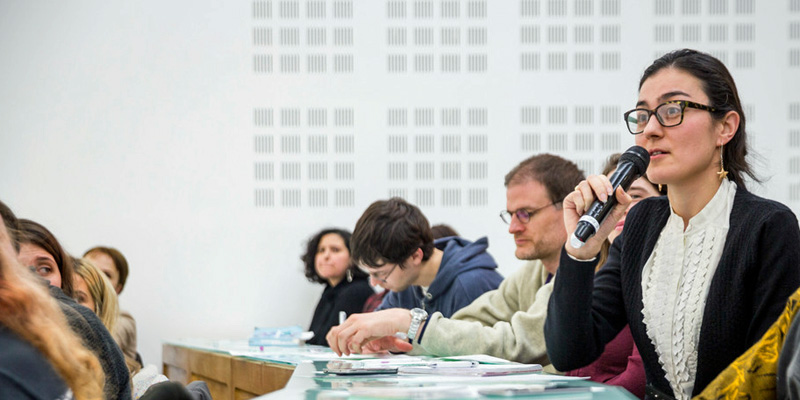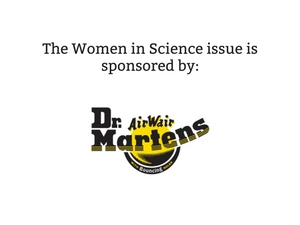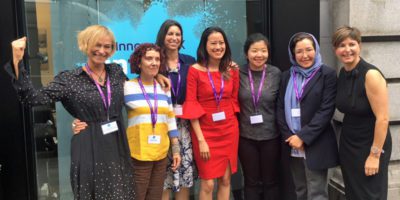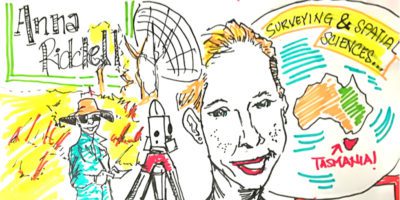Ivvet Modinou is Head of Engagement at the British Science Association, where she oversees their public-facing activity, including flagship programmes such as the British Science Festival and British Science Week. Her team are also responsible for the organisation’s volunteers across the country, all of whom organise, run and contribute to live science events. Ivvet has an M.Sc. in Science Communication from Imperial College London, having developed and delivered science communication training for researchers around the world, as well as having been a sub-editor at The Times and, in her spare time, co-founded a music discovery start-up – richseam.com.
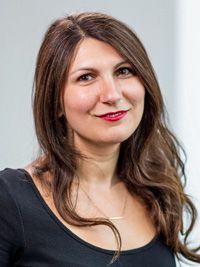
“…A lack of diversity is not only a moral issue, but also an economic issue because of a loss of talent and ideas…”
Science is not just about facts and discoveries
My love of science began with volcanoes, (as it does for most kids?!), and that passion led me on to studying geology and then going on to work at the Hawaiian Volcano Observatory. You can’t really complain living and working in a tropical paradise, but I quickly discovered I was much more interested in story telling and creating opportunities for others to engage with research, than doing the research myself.

I then went into journalism and spent a decade working at the Natural History Museum (still one of my favourite places to visit), before moving to the BSA [British Science Association]. I think the thing that has shaped my career is the belief that science is not just about facts and discoveries, it can be an excellent way of bringing people together to discuss broader societal issues and it is important that diverse voices are heard so that we can produce better science in the future.
My role at the British Science Association
My team are responsible for our adult, family and volunteer programmes across the UK, so every day is varied – which is great! I do a lot of travelling and I mainly focus on developing new partnerships, creating new programmes and a bit of fundraising too; as with most people who work in charities, you become a good all-rounder!
The value of science communication
I think the scientific community do value the opportunity to engage with different audiences; for example, last year over 10,000 researchers took part in science festivals, which is an amazing statistic and shows the level of support for public engagement with science. However, as with anything, it’s a question of time and resources and as researchers get more squeezed we need to show the value of public engagement, not just for the public but also the value it has to the researcher.
Engaging with the public may not change how a researcher looks down the microscope and conducts their experiments, but it may change their opinions about the public and help them ask new questions about their research that they have never considered before.
The value of volunteering, and it’s not just for scientists…
We involve hundreds of volunteers UK-wide, who take on a range of roles, including planning and facilitating public event programmes, engaging people with British Science Week and governing the organisation.
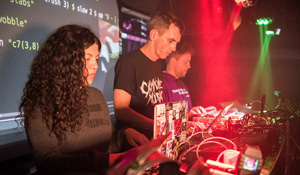
Showing girls the full range of choices available to them in scientific careers
The saying goes “you can’t be what you can’t see” so one of the important strategies for the British Science Association over the next few years is to improve diversity and inclusion in the science industry.
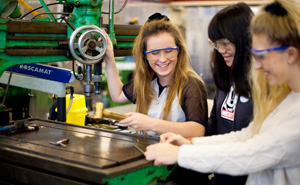
A lack of diversity is not only a moral issue, but also an economic issue because of a loss of talent and ideas. The state of gender inequality is poor in our sector; only 9% of registered engineers are female, and even in professions dominated by women, men still generally outnumber them in leadership positions.
However, things are improving, with great initiatives like Trowelblazers, ScienceGrrl and STEMettes to name a few, that are shining a light on women in science.
All-Party Parliamentary Group on Diversity and Inclusion in STEM – get involved
Our All Party Parliamentary Group (APPG) on Diversity and Inclusion in STEM was set up in 2017 and its ultimate goal would be to see a STEM sector that represents the UK population at all levels. We want everyone, regardless of their characteristics (such as gender or race), to access science careers, engage with and learn about science, and influence its position and place in society.

If any readers want to support the Group, but can’t attend the meetings, then they can help in other ways, by registering for updates on our website, talking to their local MP or community groups, spreading the word amongst friends, or even just giving us a like on social media.
Coming up
This time of the year we begin gearing up for British Science Week, which takes place every March. This is a ten-day celebration of STEM that occurs across the country from grassroots organisations, such as community groups through to museums and schools.
#Teachers & #parents: have you checked out our #BSW18 activity packs yet? They’re free to download and have a range of hands-on, easy & fun #STEM experiments & activities! https://t.co/udnMgH47wd pic.twitter.com/SwFwx5exZv
— British Science Association (@BritSciAssoc) January 25, 2018
As part of British Science Week, we’ve launched a new running app – a virtual race to the bottom of the ocean called Run to the Deep, narrated by the conservationist Pierre-Yves Cousteau, son of the famous explorer Jacques-Yves Cousteau.
We’ve also got an exciting partnership with The Plastic Tide, a citizen science project that’s tagging all the plastic on our coastlines, with the aim of cleaning up our seas. Later in the year, we’ll be hosting the British Science Festival in Hull. As festival director, it’s a busy time pulling together a varied and thought-provoking programme that will make up over 100 free events for adults, that will take place across the city from the 11th-14th September.
https://www.britishscienceassociation.org/
https://www.facebook.com/BritishScienceAssociation
https://twitter.com/BritSciAssoc

